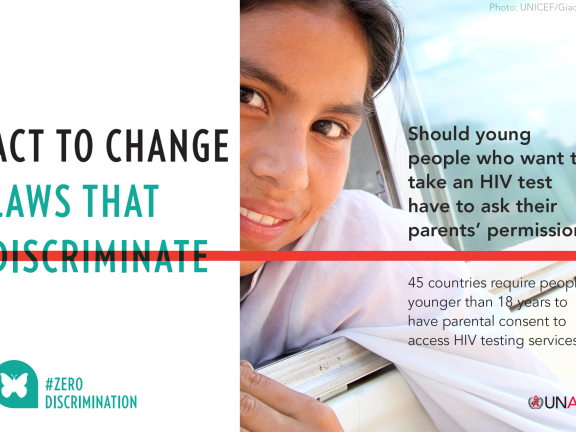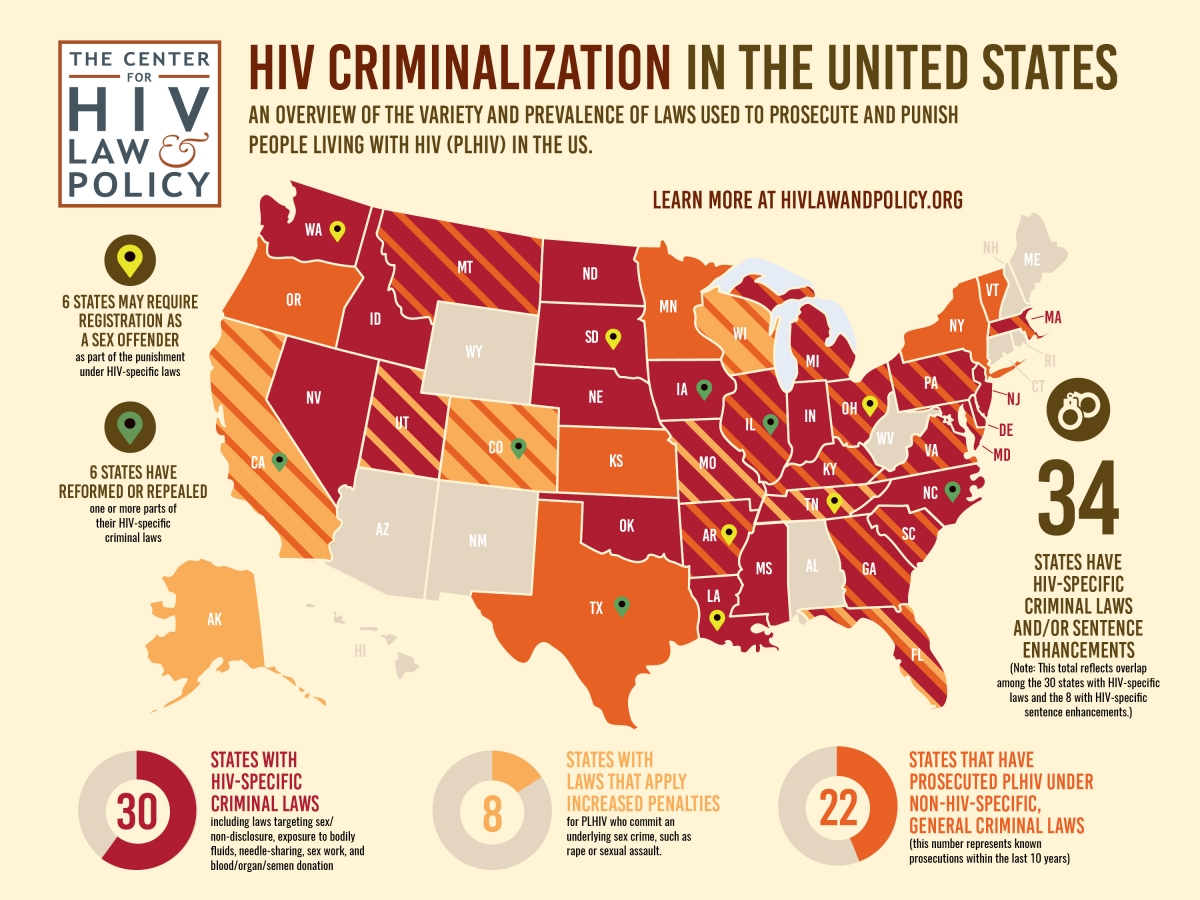On Zero Discrimination Day, CHLP joins UNAIDS Call to Action to Change Discriminatory Laws

For Zero Discrimination Day this year, UNAIDS is highlighting the urgent need to take action against discriminatory laws and policies, challenging individuals to get involved in the process of changing the laws where they live. It is a recognition that without addressing HIV-related stigma and discrimination, the laudable goal of ending AIDS as a public health threat by 2030 will not be achieved.
 There are 68 countries--and 34 U.S. states--with laws explicitly criminalizing HIV nondisclosure, exposure or transmission. As UNAIDS points out, changing these laws is possible; over the last year several countries have made changes, such as in the Philippines where the age of consent for voluntary HIV testing was lowered to 15.
There are 68 countries--and 34 U.S. states--with laws explicitly criminalizing HIV nondisclosure, exposure or transmission. As UNAIDS points out, changing these laws is possible; over the last year several countries have made changes, such as in the Philippines where the age of consent for voluntary HIV testing was lowered to 15.
From our own work with advocates and legislators in the U.S. to end HIV-specific criminal laws, we know that criminalizing HIV does not curb transmission but it does increase the undue burden of the criminal legal system on PLHIV, especially in communities of color. It also puts a government seal of approval on the persistent perception that PLHIV are dangerous--unworthy of the traditional requirement that a person intend to do harm before meriting felony status and imprisonment in this country. Eliminating this cruel characterization of a virus and the people living with it is as important to basic quality of life as antiretrovirals and it’s one of the reasons why ending HIV nationally and internationally can't be done without criminal law reform.
HIV stigma is a genuine disincentive to getting tested and engaging in the long-term care necessary to stay healthy. To make this commitment to care, people have to feel that they have a life worth living and preserving. The collateral consequences of HIV criminalization tarnish every aspect of life from housing options to employment opportunities to intimate relationships.
In short, campaigns to end the HIV epidemic at home and abroad must go beyond treatment to succeed. They must confront the injustice that perpetuates the epidemic and insist on concrete measures to reduce housing insecurity, inaccessible education, unemployment and income inequities; and government “solutions” that, like criminalization, penalize poverty, race, gender, disability and other identities outside the mainstream.
It is the equal dignity and worth of all people that is affirmed in the Universal Declaration of Human Rights, and as we are reminded today, rights that we all must pursue or lose.
The UNAIDS Zero Discrimination Day Campaign has info on how individuals, civil society and governments can work to change discriminatory laws via 2019 Zero Discrimination Day and the Global Partnership for Action to Eliminate All Forms of HIV-related Stigma and Discrimination. Click below to download.